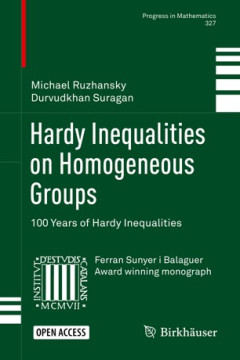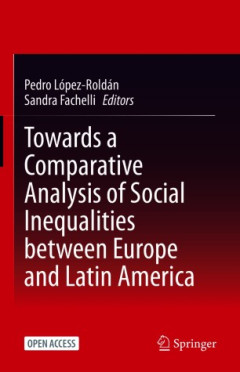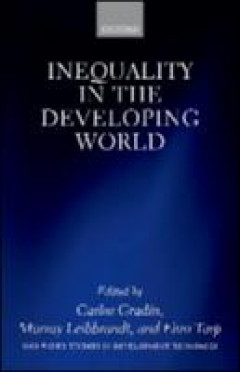Ditapis dengan

Hardy inequalities on homogeneous groups :100 years of Hardy inequalities
This open access book provides an extensive treatment of Hardy inequalities and closely related topics from the point of view of Folland and Stein's homogeneous (Lie) groups. The place where Hardy inequalities and homogeneous groups meet is a beautiful area of mathematics with links to many other subjects. While describing the general theory of Hardy, Rellich, Caffarelli-Kohn-Nirenberg, Sobolev…
- Edisi
- -
- ISBN/ISSN
- 9783030028954
- Deskripsi Fisik
- xvi, 571p. : ill.
- Judul Seri
- -
- No. Panggil
- 512.55 RUZ h

Socioeconomic factors and outcomes in higher education :a multivariate analysis
In the Colombian case, it is very common to associate academic performance with the students' socioeconomic conditions. A generalized and bivariate interpretation of this relationship could imply that only students from a high socioeconomic class would perform satisfactorily and that all students from a low socioeconomic class would perform poorly. If this is the case, then the educational syst…
- Edisi
- -
- ISBN/ISSN
- 9789587725124
- Deskripsi Fisik
- 113 p.; 22 cm.
- Judul Seri
- -
- No. Panggil
- 378 HER s

Towards a comparative analysis of social inequalities between Europe and Lati…
This open access volume identifies the common and specific aspects of social mechanisms that generate inequalities, through comparative analyses of different dimensions in which inequalities are expressed. It includes studies on social inequalities in 5 European and 5 Latin American countries, along 11 thematic axes: inequalities in the labour market and labour trajectories; asymmetries in the …
- Edisi
- -
- ISBN/ISSN
- 9783030484422
- Deskripsi Fisik
- xxiii, 480p. : ill.
- Judul Seri
- -
- No. Panggil
- 305.5 TOW t

Ethnicity, race and inequality in the UK :state of the nation
Available Open Access under CC-BY-NC licence. 50 years after the establishment of the Runnymede Trust and the Race Relations Act of 1968 which sought to end discrimination in public life, this accessible book provides commentary by some of the UK’s foremost scholars of race and ethnicity on data relating to a wide range of sectors of society, including employment, health, education, criminal …
- Edisi
- -
- ISBN/ISSN
- 9781447351252
- Deskripsi Fisik
- xv, 300 p.; ill
- Judul Seri
- -
- No. Panggil
- 305.800941 ETH e

Urban socio-economic segregation and income inequality :a global perspective
This open access book investigates the link between income inequality and socio-economic residential segregation in 24 large urban regions in Africa, Asia, Australia, Europe, North America, and South America. It offers a unique global overview of segregation trends based on case studies by local author teams. The book shows important global trends in segregation, and proposes a Global Segregati…
- Edisi
- -
- ISBN/ISSN
- 9783030645694
- Deskripsi Fisik
- ix, 523p. : ill.
- Judul Seri
- -
- No. Panggil
- 339.2 URB u

Inequality in the developing world
Inequality has emerged as a key development challenge. It holds implications for economic growth and redistribution and translates into power asymmetries that can endanger human rights, create conflict, and embed social exclusion and chronic poverty. For these reasons, it underpins intense public and academic debates and has become a dominant policy concern within many countries and in all mult…
- Edisi
- -
- ISBN/ISSN
- 9780198863960
- Deskripsi Fisik
- xx, 352 p. : ill.
- Judul Seri
- -
- No. Panggil
- 330.91724 TAR i
 Karya Umum
Karya Umum  Filsafat
Filsafat  Agama
Agama  Ilmu-ilmu Sosial
Ilmu-ilmu Sosial  Bahasa
Bahasa  Ilmu-ilmu Murni
Ilmu-ilmu Murni  Ilmu-ilmu Terapan
Ilmu-ilmu Terapan  Kesenian, Hiburan, dan Olahraga
Kesenian, Hiburan, dan Olahraga  Kesusastraan
Kesusastraan  Geografi dan Sejarah
Geografi dan Sejarah